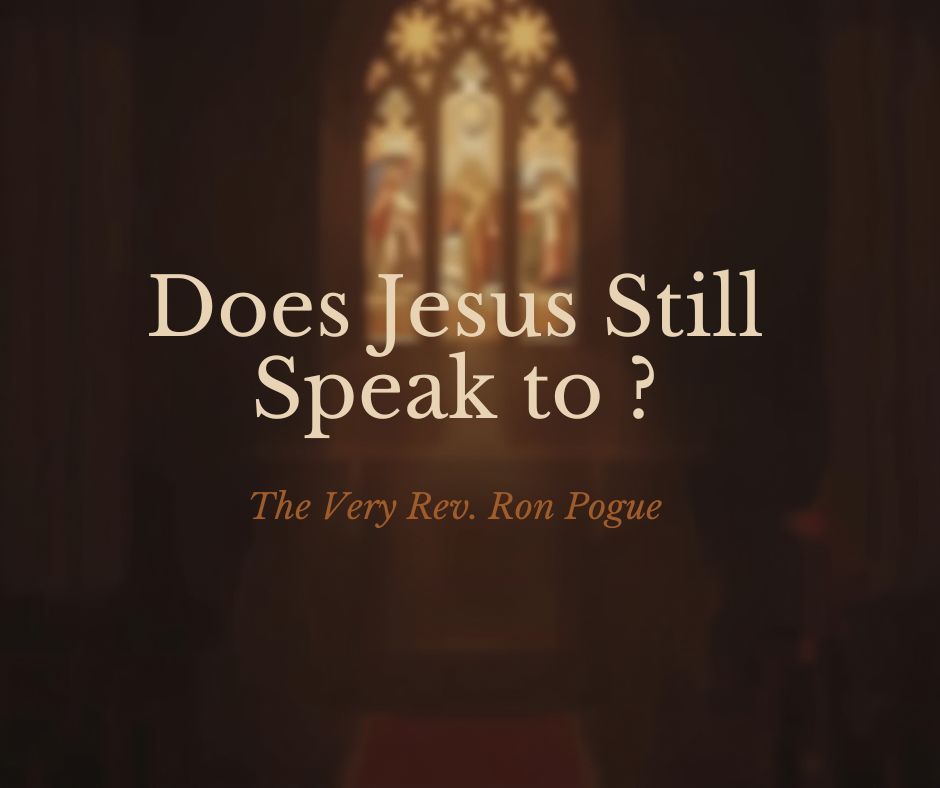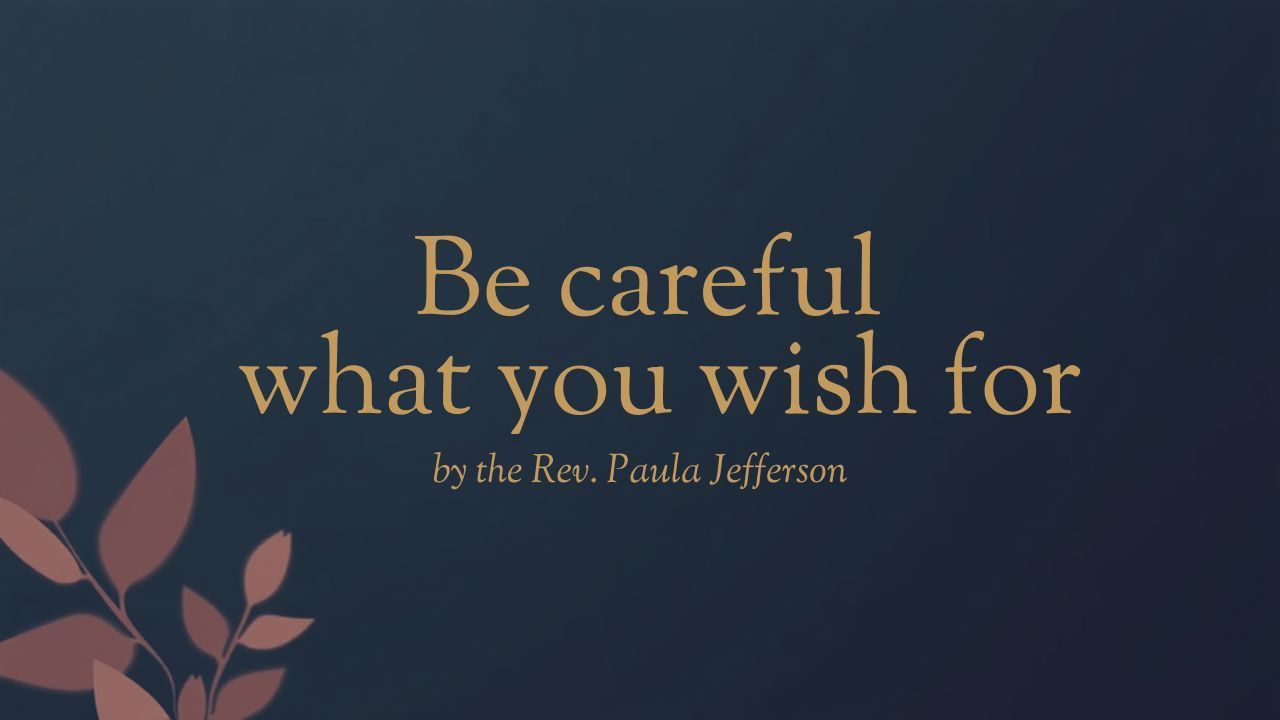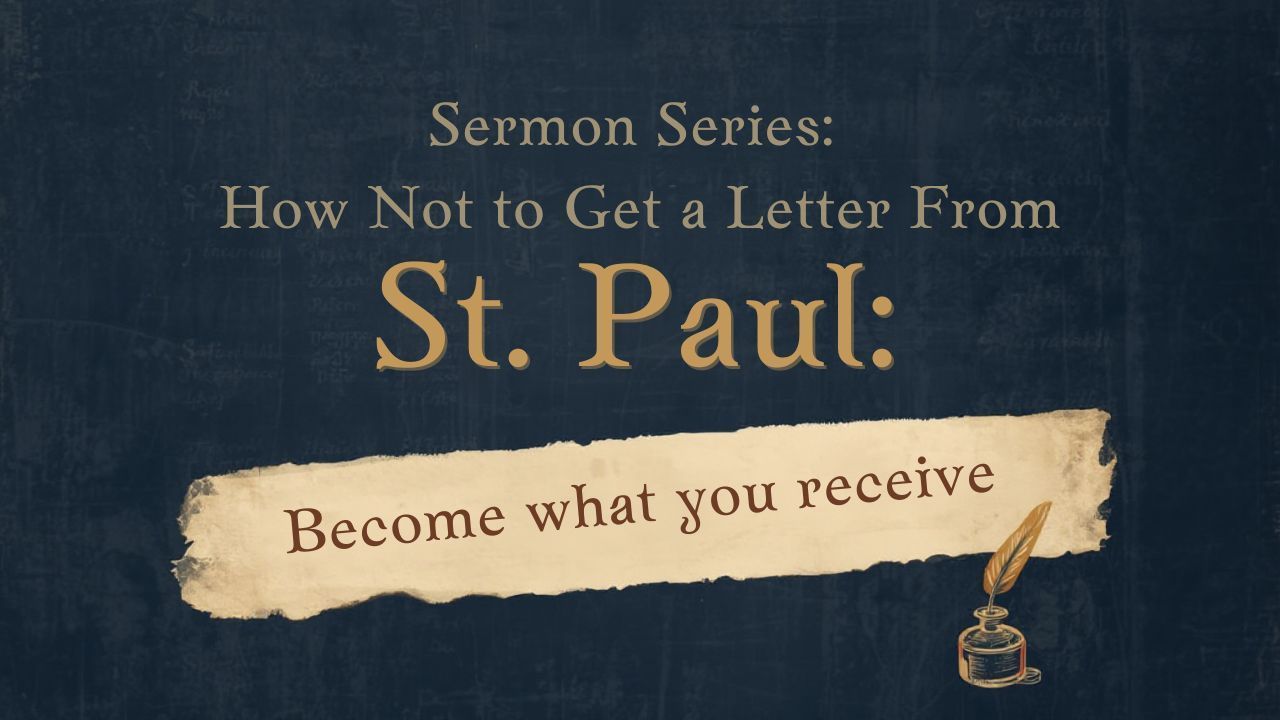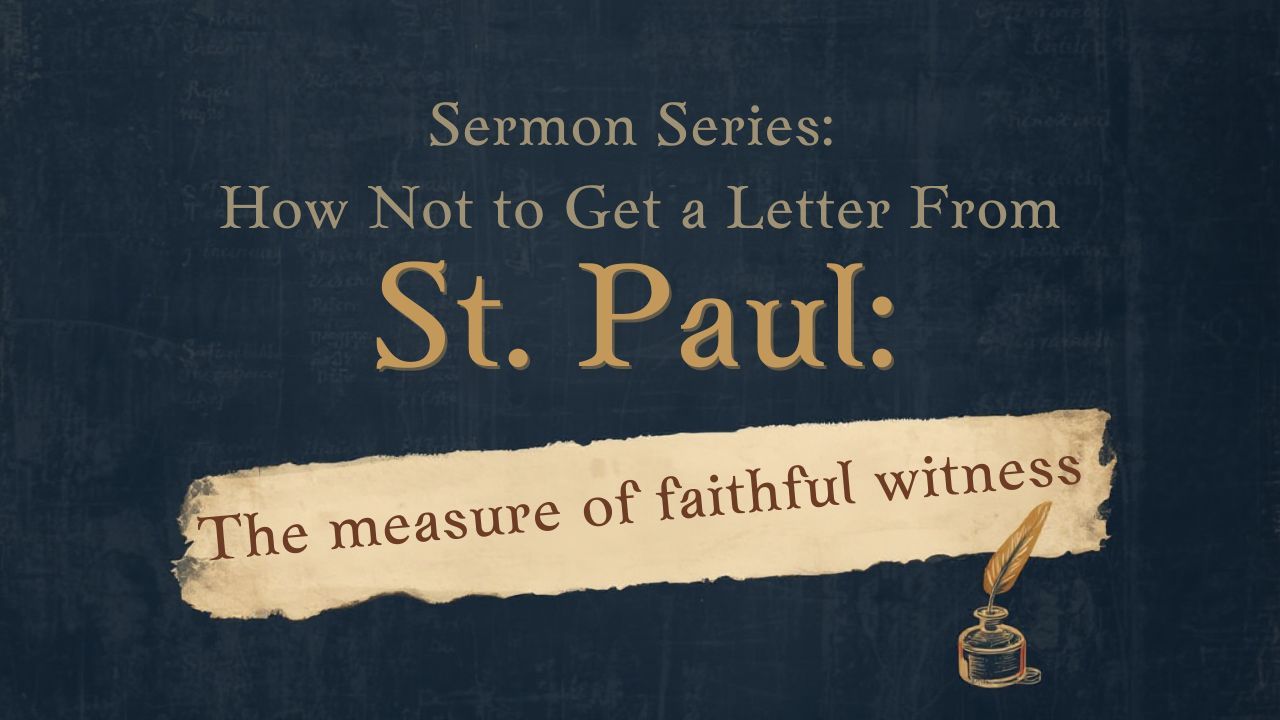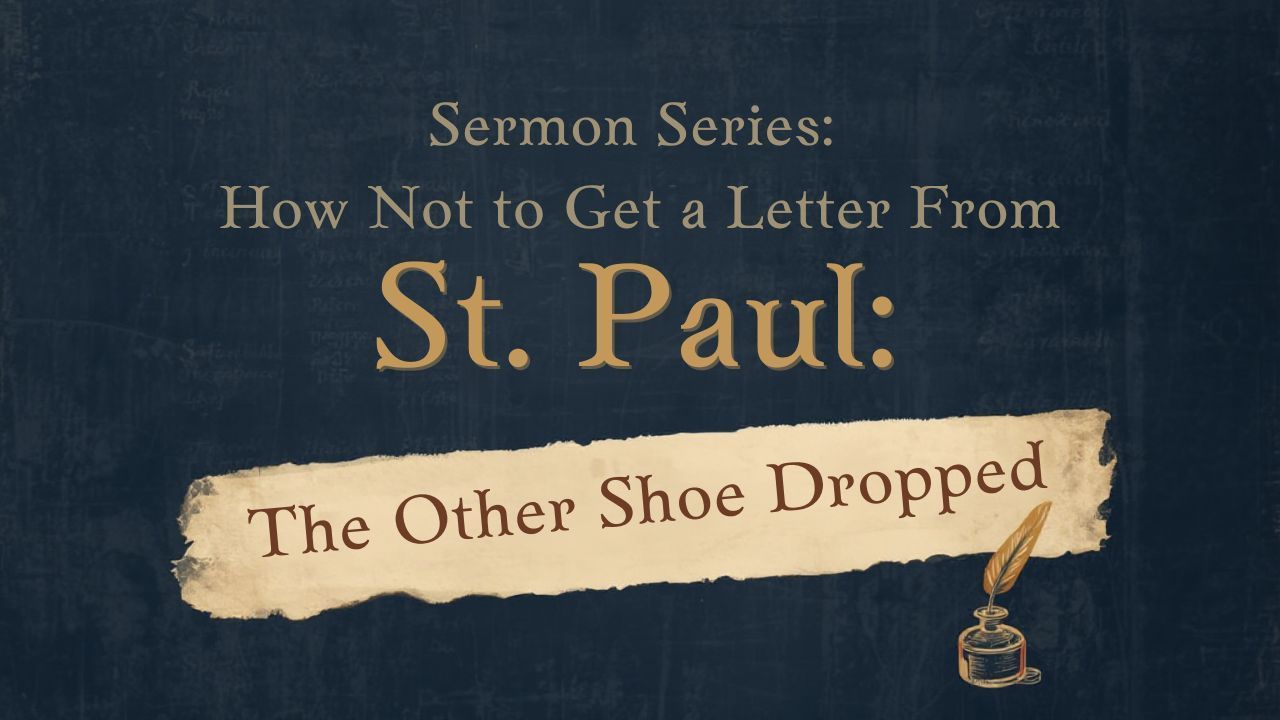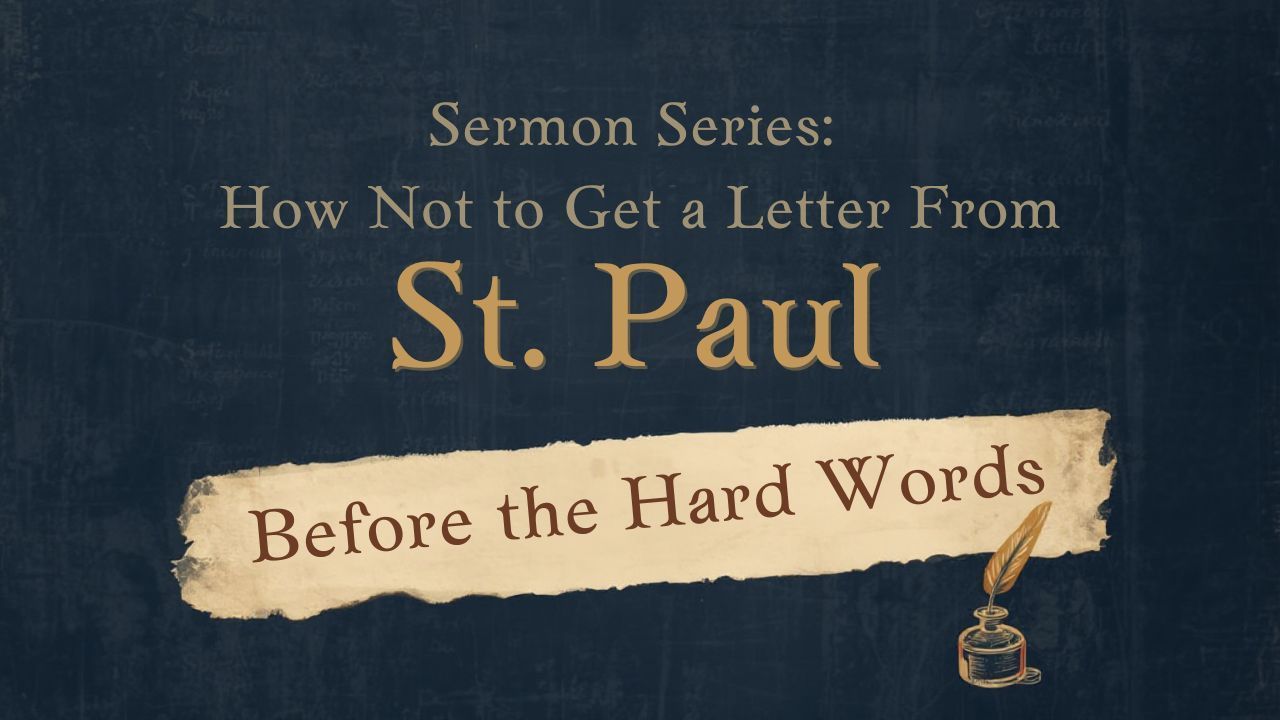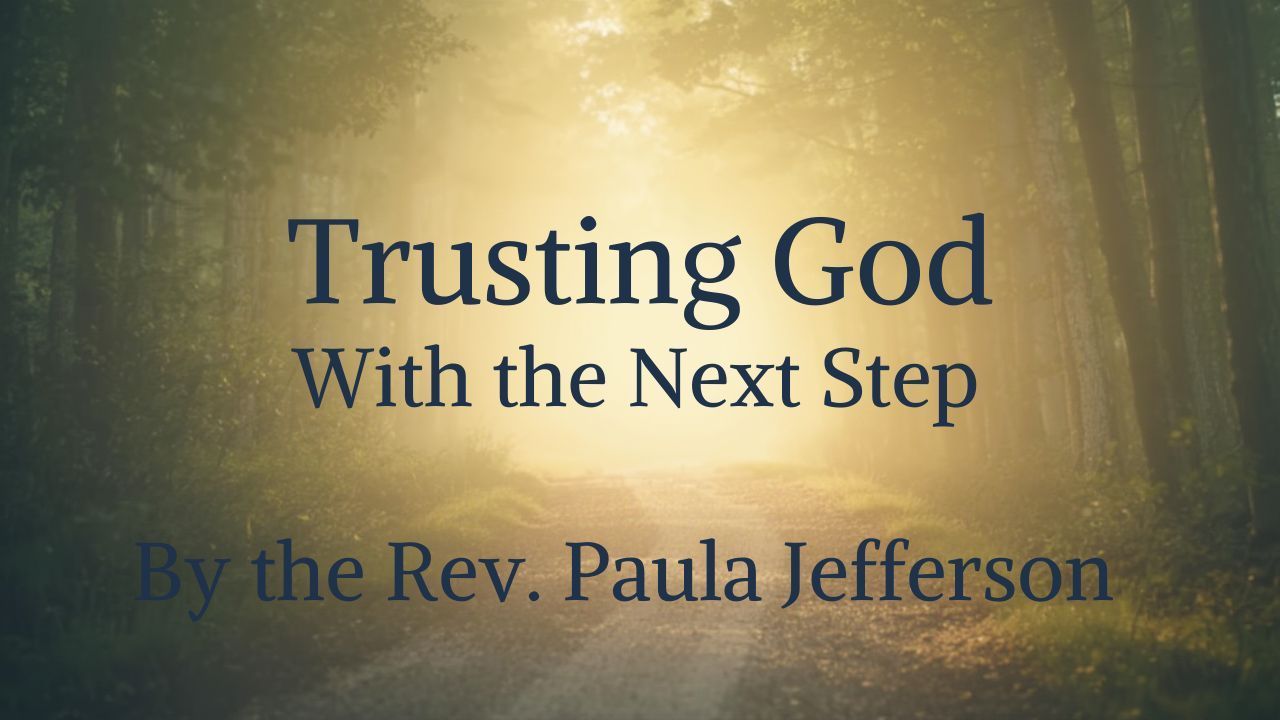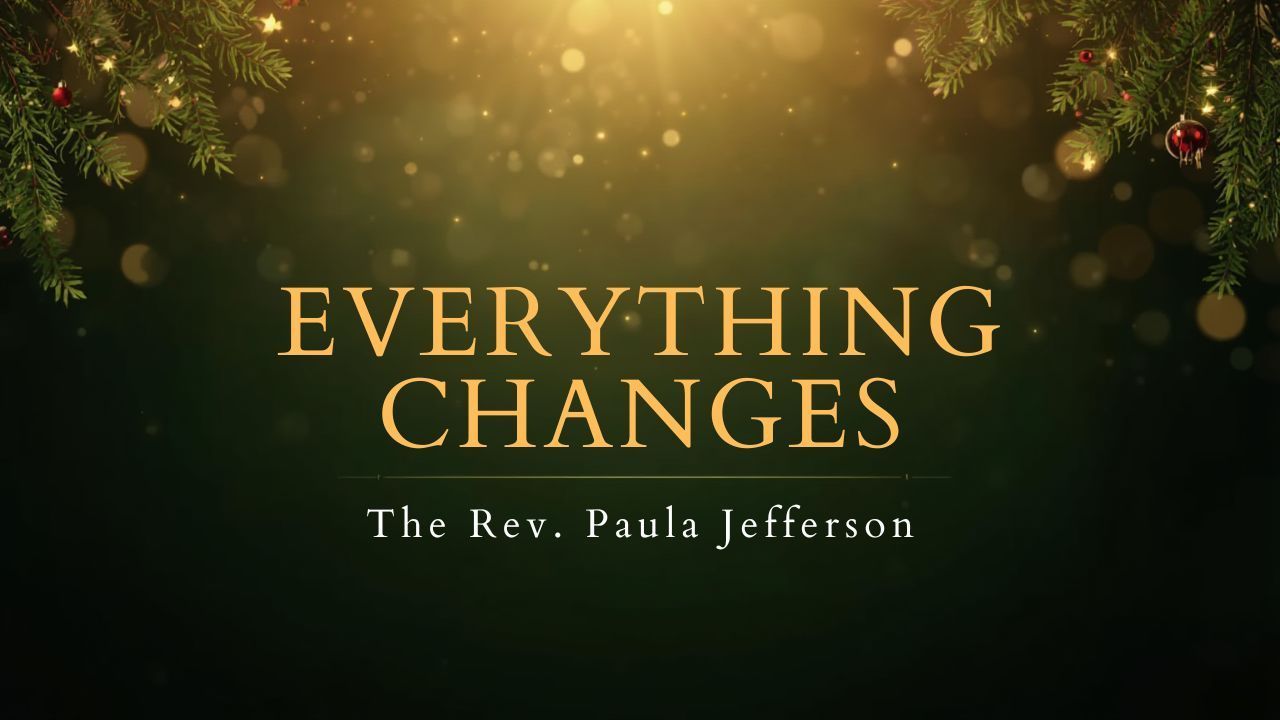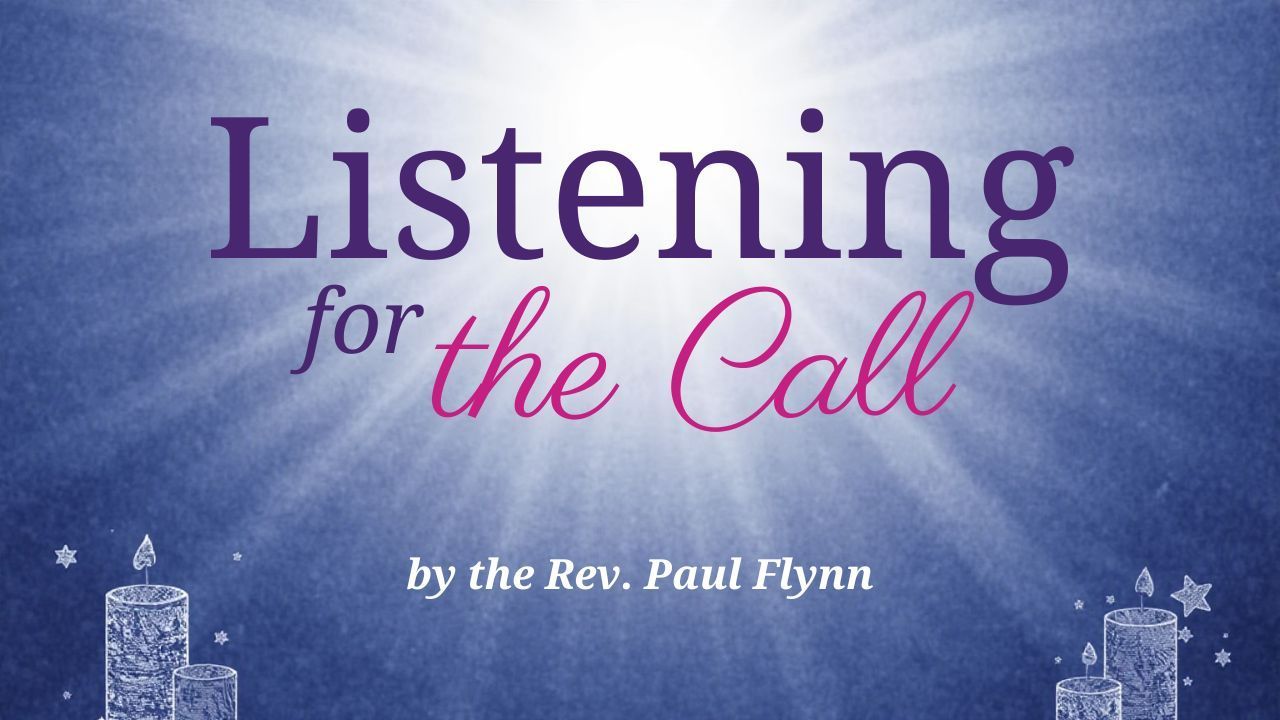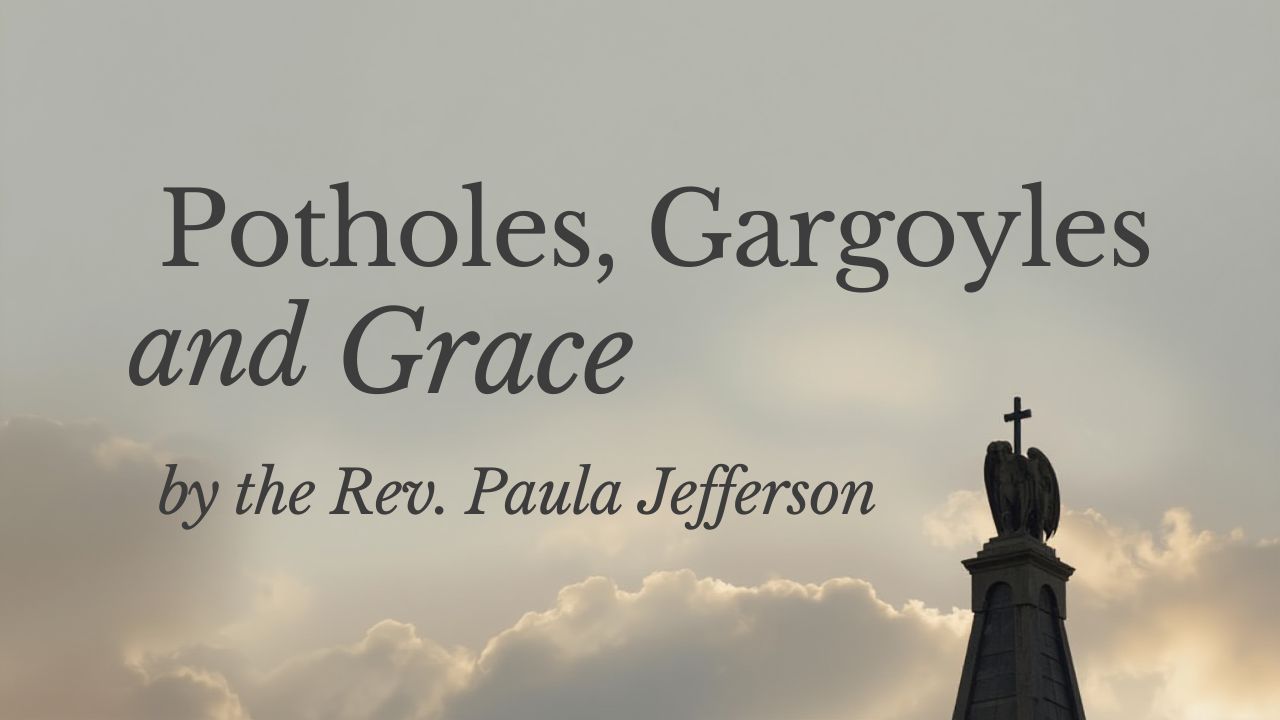As some of you may be aware, last weekend I was not here for Sunday morning worship. Last weekend, I was down in Navasota, Texas at Camp Allen – which is a retreat and conference center owned by the Diocese of Texas. Al Pamento and I were both there for what is called the “Discovery Retreat” – a weekend retreat that the Diocese of Texas offers two or three times a year for those who might be discerning a call to some level of ministry in the Episcopal Church – be it an ordained role or even a lay ministry role. It was a very a rewarding experience for me and I learned so much about the Diocese of Texas, the discernment process for ordination, and I even learned a lot about the history of the Fort Worth part of the diocese going back as far as before I have been alive. There were many conversations that I had over last weekend that were truly valuable to me.
One conversation in particular that I would like to highlight is one I had over lunch with 3 other men on that Saturday. We got into some deep theological discussion and at one point, we had a conversation about violence in the Bible. We seemed to be each sharing our opinions on it and since I was part of the discussion, I voiced my own opinion and observation that there are many parts of the Bible that are just downright violent and tribalistic. In particular, I mentioned some of the passages from the Hebrew Bible which depict God as commanding the Israelites to commit genocide against whole groups of people. I made it known that I felt that these types of passages in Scripture highlight an “us versus them” mentality that is all too human and that as followers of Christ we have to take them very seriously and wrestle with the fact that they are in our sacred Scriptures. Of course, we did not reach a definite conclusion on this matter during lunch. But the conversation was rich and deeply enlightening.
I mention this conversation because I was reminded of it when I was looking at our various texts for this Sunday morning. Looking at them together, they crystalize for me part of what I was highlighting about Scripture to these three other young brothers in the faith regarding violent passages in the Bible and what kind of sense we can make of it. Look at our passage from Psalm 68 this morning: it begins with “let God arise and let his enemies be scattered. Let those who hate him flee before him. Let them vanish like smoke when the wind drives it away; as the wax melts at the fire, so let the wicked perish at the presence of god.” Right here in Psalms, we have the human impulse of “us versus them” written down – and in a very violent way. Thousands of years ago, human beings were dealing with some of the very same things we see in our own time period. The fact of the matter is that “us versus them” is – as Rev. Paula mentioned to me one night during a meeting of Christofolx back in March – part of “what humans do.” I need not list all of the ways in which we see this in our own contemporary society today. Suffice it to say, we see such tribalism all over the place in our modern world. Is it any wonder then that our human ancestors in Bible time struggled with this same human instinct and some of it is even reflected in our Scriptures?
Yet, we know as Christians that tribalism, exclusion, violence, and “us versus them” is not the end of the story. Our lesson from Acts is a masterpiece in how Jesus, the Christ, calls us to shift our thinking and to resist this all too human impulse toward tribalism. It starts out with the apostles questioning Jesus on whether Jesus would restore the Kingdom of Israel at that particular moment two thousand years ago. Now just think about that for a second. Essentially, the primary concern of these apostles was their own tribe – which in this case was the Kingdom of Israel. And what was Jesus’ response? Jesus asserts that they will receive power from the Holy Spirit and that they will be the witnesses of Christ in Jerusalem, Judea, Samaria, and all the ends of the earth. What a remarkable response. Right here in the book of Acts, Jesus provides the answer to this age old human instinct toward tribalism; and that answer is that God cares about ALL. Jesus did not answer by saying let the enemies be scattered. He did not respond by saying that the Kingdom of Israel is the only group of people who are important to God. No. Rather dramatically, Jesus calls the apostles – and therefore all of us – to question our own tribalism and to see and experience God as a source that calls ALL humanity to God’s self. Our Gospel lesson from John goes further and makes it more explicit when Jesus prays and declares that he is for ALL people and that he is about eternal life for ALL.
There comes a point – I believe – when all of us must question our faith and why it is we believe what we believe. Why am I a Christian? Why is this Jesus stuff so important for me? - Questions like that. As a millennial, I am part of a generation of people who are leaving religion – and specifically Christianity – behind in droves. When I talk to other people my age – and people of all ages really – who no longer identify as Christian, I usually get a very similar response. It is the tribalism. It is the “us versus them.” It is the condemnation, which often comes with violent connotations. Things that – as we have seen – even our Biblical ancestors were guilty of. But the call of Christ is one of life. To heed Jesus’ call to see all of humanity as important to God – to see even those who we might consider “enemies” as just as much deserving of the love of God is to see God as life itself. Jesus told the apostles that with the help of the Holy Spirt that they would spread this message of life to the ends of the earth. And as followers of Christ in the twenty-first century, the task is more important than ever and falls to us. One of the beautiful thing about our sacred Scriptures, to me at least, is that they invite us to encounter the darker aspects of our humanness – such as violence – and then seek to see God as a source of life that challenges us to resist those elements and in so doing, become even more fully alive and human. That is why I am a Christian. And that is my conclusion from the questions raised by my three friends from last weekend. It is also my response to all the people leaving Christianity today. Perhaps, if we all heed Jesus’ call to be his witnesses to God’s love for all humanity and not just for ourselves and our own group, we will be doing our part to make the Kingdom of God a true reality in our own day.
